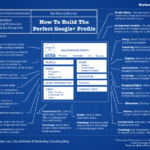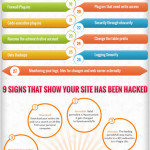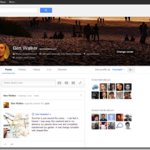Hi everyone! Hope you all had a great and productive week. Undoubtedly, one of the most noteworthy news this week is that of WordPress sites being hit by massive botnet attacks. Performance and security provider CloudFlare wrote on a blog post this week:
There is currently a significant attack being launched at a large number of WordPress blogs across the Internet. The attacker is brute force attacking the WordPress administrative portals, using the username “admin” and trying thousands of passwords. It appears a botnet is being used to launch the attack and more than tens of thousands of unique IP addresses have been recorded attempting to hack WordPress installs…
 Everyone using WordPress should not only be concerned about “brute force attacks” but also ensure that adequate WordPress security measures are in place to minimize attempts. One big no no is definitely using the username “admin” and a weak password. Change you username now and please do avoid using “your sites name”, “your own name”, and “your domain name”. Those are also pretty much obvious. If you need to enhance your WordPress security, start on that link above, and install some simple security plugins, just to play it safe.
Everyone using WordPress should not only be concerned about “brute force attacks” but also ensure that adequate WordPress security measures are in place to minimize attempts. One big no no is definitely using the username “admin” and a weak password. Change you username now and please do avoid using “your sites name”, “your own name”, and “your domain name”. Those are also pretty much obvious. If you need to enhance your WordPress security, start on that link above, and install some simple security plugins, just to play it safe.
On a different front, Google has been busy this week launching or announcing several changes from their offered services. First up is the Google Affiliate network being killed. If you are using Google’s affiliate network, you should know that soon, it will be decommissioned. Time to make sure you don’t put up new links and eliminate the existing ones, just in case.
Better news from Google is the long awaited integration of Google+ in the comments area of our blogs. Google has rolled out this new feature and for now it is only available on blogger. All you have to do is to enable it. Good news and hopefully they will roll it out to other platforms as well. You can see it in action here. Just a reminder though. From what I can tell (based on a comment I left on Google’s blog), once you leave a comment on a Google+ enabled blog, you are “automagically” sharing that post to your G+ stream. Just be sure that’s your intention.
Finally, for Google AdSense users, an official announcement has been released this week. A new AdSense TOS (term of service) is underway and will be rolling out slowly to all users. Once you see a notification in your account, you have 30 days to accept it. I know many of you do not really take the time to read this stuff, but, if AdSense is worth your time, you should read the new TOS carefully.
As usual, in no particular order:
SEO/Search/Marketing/Analytics
- How you can use your keywords to drive personas
- What happens when your SEO traffic is only from branded keywords?
- 6 actionable metrics for content marketers & bloggers (that you won’t get from Google Analytics)
- Penguin 2.0: How Guest Blogging Will Be Affected
Social/Blogging/Small Business Bites
- 20 Twitter Hashtags To Make You An Entrepreneurial Star
- How to Become Internet Famous for $68
- How to Make a Blog Stand Out Amongst a Sea Of Copycat Blogs
- 10 Questions to Ask Before Determining Your Target Market
- 50 Awesome Ideas on How to Market Your Business Online
More Cool Stuff and Other Roundups
Will multiple internal links with the same anchor text hurt a site’s ranking?
Do internal website links with exact match keyword anchor text hurt a website? These links help our users navigate our website properly. Are too many internal links with the same anchor text likely to result in a ranking downgrade because of Penguin? – Answer? Typically not …
That’s it! Enjoy, have a great weekend!









Comments are closed.